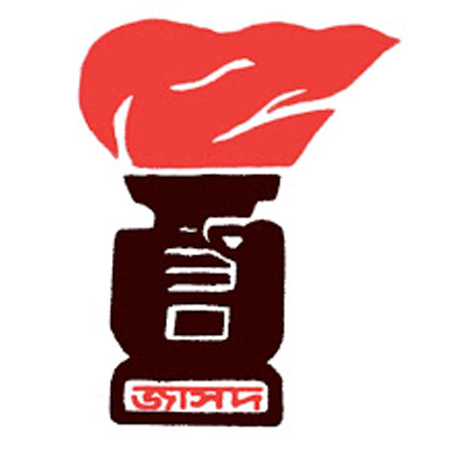
Jashod vs JRB
After the formation of the left-leaning, socialist Jatiya Samajtantrik Dal (JSD, National Socialist Party), or Jashod for short, on 31 October 1972 there were frequent clashes with the JRB, which they considered to be a concrete indicator of a police state . The party, led by Colonel Abu Taher, Major M. A. Jalil, A. S. M. Abdur Rab and Shahjahan Siraj (who hoisted the first Jatiyo Potaka, or Bangladesh Flag, in front of the Arts Faculty Building of Dhaka University during Muktijuddho), vehemently opposed the Awami League, organised a people's militia to topple the Sheikh Mujib-led government and organised strong anti-government agitation during 1974 and 1975. Jashod had a strong student following who opposed Mujibbad, as such the youths and students activists became the main target for JRB. In response Jashod penetrated in the ranks and files of the Bangladesh Army and established clandestine cells in the army under the rubric of Biplobi Gono Bahini (BGB, Revolutionary People’s Army) and Biplobi Gana Sena (Revolutionary People's Army).
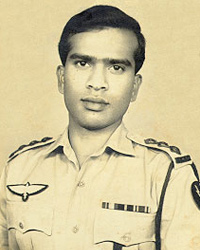 Abu Taher ()
Abu Taher () 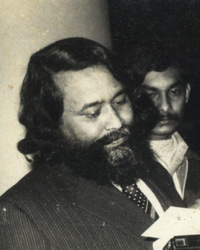 M. A. Jalil ()
M. A. Jalil () 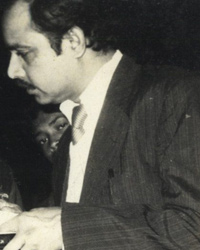 A.S. M. Abdur Rab (Born 2 Jan 1945)
A.S. M. Abdur Rab (Born 2 Jan 1945) 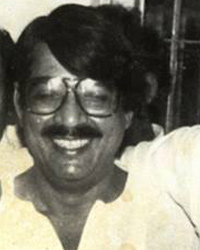 Shahjahan Siraj ()
Shahjahan Siraj ()
[Colonel] Taher's military experience and his authority, drawn from his uncompromising attitude against the corrupted regime, explain the success of his movement. Though officially dismissed from his post, Taher maintained relations with his former brigade and could therefore organize clandestine revolutionary cells within the army. Civilians who had fought in the 11th sector that Taher had led, and upon whose revolutionary fibre he could rely, also joined the BGB's ranks. An interface was even set up to provide activists and develop networking between the Jashod and the army: this was the Biplobi Shoinik Shangstha (BSS, Revolutionary Military Associations), modelled upon the pre-1917 Russian Soviets. Yet, its main objective was to gather intelligence and to prepare a coup d’état.
Under these circumstances, Mujib's repressive measures were totally ineffective. Though an authoritarian leader, he persisted in neglecting the army, and this was precisely the root of the armed dissent he was facing. In fact, a structural reform of this institution and a redefinition of its relations with civil society were necessary to break the organic link between revolutionary parties and soldiers. This was all the more required after 1973, when the army confronted an additional internal tension, which would have even more decisive consequences on the civil-military delicate balance.
During 1973 politically motivated killing increased. Anthony Mascarenhas, who had famously written the 'Genocide' article during 1971 Muktijuddho, believes that by the end of 1973, over 2,000 politically motivated murders had taken place in Bangladesh. The victims included some members of Parliament and many of the murders were resulted of intra-party conflicts within Awami League.
Even the capital Dhaka was not immune to the violence. An unofficial curfew was introduced after midnight. Almost every rickshaw, taxi and private car was checked and searched by Rakkhi Bahini personnel.
The force which emerged to be a hero, turned into a villain.
Dark cloud of failure began to gather in the independent sky of Bangladesh. The rot was setting in from within.
Corruption and monopolisation of state contracts by the ruling party cliques became so rampant that an economy of nepotism, corruption and black market literally took over the economy. Political oppression on Siraj Sikder revealed the autocratic nature of the highly personalised government run by Bangabandhu.
The breaking out of JSD (Jatiyo Samajtantrik Dal) from within the ranks of Awami League clearly revealed the breach within ruling party ranks.
Ahmed Hussain, journalist
Siraj Sikder and 30,000 other political workers were killed during Awami League's 1972-75 rule. Democracy was butchered with the Fourth Amendment. The [current] prime minister [Sheikh Hasina] should ask the people for forgiveness [for her dad's 'mistakes'].
Mirza Fakhrul Islam Alamgir, BNP acting secretary-general
Special Powers Act introduced and abused
On 9 February 1974, Jatiyo Sangsad (Bangladesh's parliament) passed the Special Powers Act (SPA), 1974, which under sections 2 and 3 empowered the government to detain an individual without charge if they deem it necessary to do so to prevent them from committing "prejudicial acts".
"Prejudicial act" means any act which is intended or likely:
- to prejudice the sovereignty or defence of Bangladesh;
- to prejudice the maintenance of friendly relations of Bangladesh with foreign states;
- to prejudice the security of Bangladesh or to endanger public safety or the maintenance of public order;
- to create or excite feelings of enmity or hatred between different communities, classes or sections of people;
- to interfere with or encourage or incite interference with the administration of law or the maintenance of law and order;
- to prejudice the maintenance of supplies and services essential to the community;
- to cause fear or alarm to the public or to any section of the public;
- to prejudice the economic or financial interests of the State;
Under this Act a person could be kept in detention for indefinite period. The detainees only safeguard is that this is reviewable, initially after 120 days (i.e. 4 months), and thereafter every six months, by a government-constituted advisory board made up of two persons qualified to be high court judges, and one senior officer in the service of the Republic. The proceedings before the board are confidential and the detainee has no right to be represented by a lawyer or to examine the evidence on which his detention is based. Those that can afford a lawyer challenge their detention through habeas corpus petitions (i.e. the right of a prisoner to challenge the terms of his or her incarceration in court before a judge). For those without access to legal counsel, the only hope is that the government revokes the detention order on its own initiative or that the advisory board finds that there is insufficient cause for the detention.
These special measures were introduced to conduct more speedy trial and effective punishment for certain grave offences. It is still applicable today. Despite election promises, the Act has never been repealed and in fact, under the emergency rules in force after January 2007 (Emergency Power Rules, 2007, section 21), the types of acts for which a person could be held in preventive detention were substantially increased.
Successive governments have used the Special Power Act widely to suppress political opposition and participants in peaceful demonstrations, as well as against individuals engaged in personal disputes with people in positions of authority. Often, detentions have been based on mere allegations.
...From 1974 to March 1995, according to court records, of the 10,372 habeas corpus writs that were moved before the High Court Division of the Supreme Court to challenge detentions, only in less than 9% did the court find the detentions to be valid - an indication of the extent to which the Act has historically been misused. However, the executive seems to have taken little or no notice of the Supreme Court's repeated criticism of the law and its implementation. It has even ignored release orders, forcing the court to initiate contempt of court proceedings.
As long as the Special Power Act remains in force, it is likely to be utilised as a tool for arbitrary detention. Those who use it are protected by section 34, which states, "[N]o suit, prosecution or other legal proceedings shall lie against the Government or any person for anything in good faith done or intended to be done under this Act".
The existence of Special Power Act 1974 (SPA), under which a person can be kept in detention for indefinite period is an indication of bad 'Rule of Law' situation in the country.
